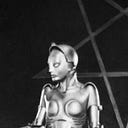Brigsby Bear is a surprisingly sweet comedy released in 2017 from director Dave McCary and writer Kyle Mooney of SNL and Good Neighbour fame and it is at least the second best bear related movie of that year that made me cry.
The film tells the story of James, a young man who was raised in captivity with only the bizarre TV show his abductive “father” would make every week to keep him entertained returning to the real world and having to cope with the realisation that the story he held so dear was both a construction of the people who stole his formative years from him and not finished. The core of the story is about James adapting to his new surroundings as he finishes the story of Brigsby Bear while finally coming to terms with what it meant to him.
However, the concept of Brigsby Bear also gives Mooney and co-writer Kevin Costello another opportunity. The idea of a TV show with an audience of exactly one works as the perfect allegory for fandom by boiling down the complex dynamic between the creator of a piece of media and a fan to a personal relationship between two people. This reframing of fandom as a personal exchange both helps further the story of James coming to terms with what Brigsby means to him and allows Mooney and Costello to comment on wider experiences of fandom.
There’s a scene near the end of the film’s second act that I believe exemplifies this best. James, far into production of his Brigsby Bear finale movie tracks down an actress who starred in the show for years in the hope that she might return for the end. McCary and the writers frame the whole interaction more like an awkward signing at a comic con than a man confronting someone who was (unknowingly) complicit in his decades of imprisonment.
He approaches her with questions about something that was only ever a job for her and an enthusiasm she can only pretend to match, at times he can’t help but see her as the character she played even when faced with the real world in her having a kid and a job she doesn’t care for. And finally, when the police arrive and James realises it’s his time to leave, he confesses his love for her, or what he understands to be love based on what she meant to him as a child. This is a scenario all too common when nerds (and I mean this in the nicest possible way) are placed on a level with the people they grew up admiring.
James isn’t validated by the story for this, he doesn’t end up with her and nothing comes of it besides motivating her to help finish the film and I think this is another important aspect of how the film handles this topic. Typically these confessions of love from older fans of a piece of art are imbued with a feeling of entitlement to an equivalent response but the film uses James’ detachment from society and the absence of years of misogynistic conditioning to present this confession as something more innocent and childlike than it would be without this context.
Another scene where Brigsby Bear builds on this metaphor is in the third act when James visits Ted Mitchum (Mark Hamill), the man who was one of his kidnappers and the creator of the show Brigsby Bear. The intent of this scene narratively is to show James moving on from his experience but it also has another layer. James reuniting with Ted after his time on the outside is used by the film to discuss the experience of reassessing pieces of media that meant something to us at one time through a new lens after we’ve matured or changed our views. The film achieves this again by diluting this down to the feelings of two people.
This scene however takes a slightly different approach to the previous one I’ve discussed. Instead of James taking charge, Ted, the stand-in for the creators of a story and arguably the story itself is the one who does most of the talking. He makes excuses and emotional appeals to justify his behaviour in much the same way we do with ourselves when coming to terms with something we once liked being kind of awful in retrospect. This isn’t to say that James has no input here. His coming to terms with what was taken from him while reclaiming Brigsby as something that he can end how he chooses acts as a stand in for the kind of compromises we often reach between our rose tinted nostalgic view of something we loved and the knowledge of how even then it was flawed.
And finally, Brigsby Bear’s simple idea of turning fandom into a direct relationship is ultimately turned on its head by the story as it works backwards from this point. While James is the show’s only fan in the beginning, the understanding of the show he reaches by the end is shaped in part by how he shares it with the people around him. As toxic as fandom can be (is), Brigsby Bear understands the power that a community formed out of an earnest love for something can have. We see a character who genuinely cares about a story because of what it meant for him introducing people he cares about to that world because it’s a better reflection of him as a person than anything he could articulate and being met with compassion and patience, not judgement. Brigsby Bear understands that be it JK Rowling and her constantly worsening politics or a TV show about a bear that literally aided in a kidnapping or even just something that we only realised later was kind of bad, lasting connections were built, not simply upon a shared appreciation of a thing but from a shared understanding of what that thing means to another person.
